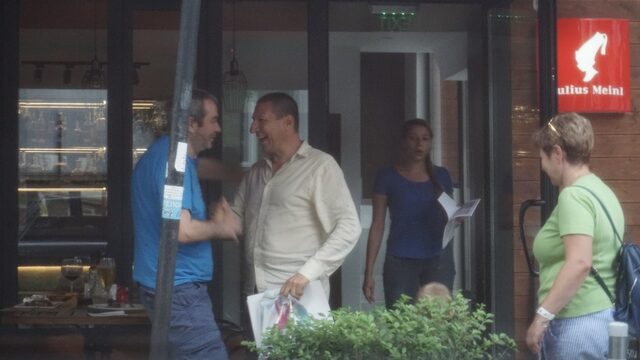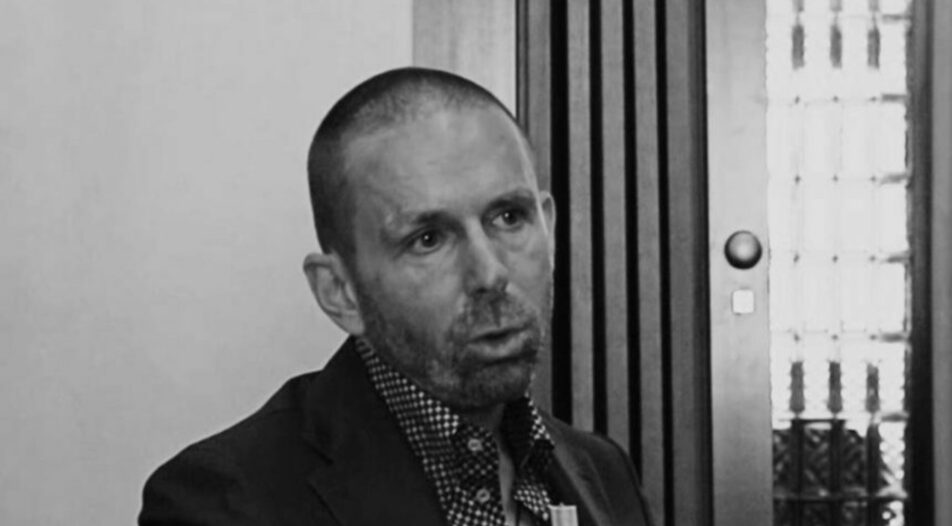In the fortnight since the death of the little known influence peddler in the justice system, Martin "the Notary" Bozhanov (who was not actually a notary), the Bulgarian State Prosecution has practically imploded.
The brutal public assassination of Bozhanov triggered a chain of events that exposed the existence of at least two large informal networks of judges and prosecutors operating outside the law. They decided whether indictments would turn into court cases and whether these court cases would end up in effective sentences in secluded clubs instead of the courtrooms. In so doing they effectively turned the justice system into an extortion tool for personal enrichment and settling of scores.
In the following article, KInsights will try to summarize the extremely complicated story that links Bozhanov's killing, his network of influence, another similar informal network, which was overseen by the former National Forensic Service head, Petar "the Euro" Petrov, and the last two Prosecutor Generals. The story matters not only because it exposes the rotten state of the Prosecution in Bulgaria, but also because it has already caused a rupture within it, which might result in power struggles at a crucial moment for judicial reform.
Who is the Notary and why did he become important post-mortem?
Within anti-corruption journalism and activism, Bozhanov has been long-known as one of the key "lobbyists" in the judiciary, exerting influence on cases through blackmail, extortion and corruption of magistrates. According to testimony in the specially created parliamentary committee on Bozhanov's death, one of the ways he co-opted magistrates was by offering their relatives cheap apartments (that he acquired through extortion - often with the help of police officers and prosecutors, closing the circle) for favors in specific cases.
What is more, Bozhanov's audacity grew to the extent that he publicly threatened judges in court, including Pleven judge Vladislava Tsarigradska, for not ruling in his favor. Tsarigradska told her story to the media and to parliament following Bozhanov's death, for which she and her colleagues received dozens of death threats.
For his activities, he enjoyed the special favor not only of the heads of the now defunct Special Prosecutor's Office (SPO), but also of some other prosecutor's units in Sofia, which he gathered in a private club called "SS", located right next to the SPO's former premises. It turns out that many of the inspections and property fraud cases that were related to the Notary were under the jurisdiction of the Sofia District Prosecution (SDP), but none of them resulted in an opinion of a crime, which hints at the employment of extortion practices.
The connections of Bozhanov seem to have reached the top of the Prosecution's leadership, as it was revealed that former Prosecutor General Ivan Geshev, who headed the SPO before he got promoted, owned a pass to the private SS club. The information came from current Prosecutor General Borislav Sarafov, who used to be Geshev's right hand until the prosecutors in the Supreme Judicial Council nominated by GERB and MRF surprisingly ousted him in May last year, heralding the creation of the new parliamentary majority.
The events surrounding the death of the Notary made Sarafov raid the SDP on February 9. A few days later, after an interview appeared in the 24 chasa newspaper with Greek business manager Anastasios Dikos, CEO of Danaos Development, which is a partner in Sofia Ring Mall, IKEA and two large residential development projects, the head of the SDP Nevena Zartova resigned. The reason: Dikos complained the company he manages had been subject to a brutal and coordinated institutional racket through the group of Bozhanov and his partner, lawyer Velimir Atanasov. An important role in this racketeering, in his words, was played by the SDP and Zartova, who allegedly had an "emotional relationship" with Velimir Atanasov, with whom she lived. "They control the district prosecutor's office," the Greek businessman claims of the group of prosecutors, close to Bozhanov.
A parallel scenario
And while Prosecutor General Sarafov tried to use Bozhanov's case to attack his predecessor Geshev and some of his postures in the institution, the revelation of the Notary's network revived the specter of the links of Sarafov to another similar network, known as the "Eight Dwarfs'' after the restaurant which Petyo the Euro Petrov - another lobbyist with a similar portfolio to Bozhanov - owned and used as a base for operations. Both networks were exposed in investigations of the Anti-Corruption Fund (ACF) watchdog in recent years, but neither was given proper treatment by the prosecution, which always tried to bury them - until recently.

In short, the informal network of influence in the prosecution, led by Petrov (who is now supposedly hiding outside Bulgaria) has been known to the authorities at least since 2021, when the ACF published a series of investigations, which exposed extortion schemes linked to high-level magistrates. One of these magistrates that was evidently close to Petrov (as shown by leaked pictures of the two chatting amicably in front of the restaurant) is current Prosecutor General Borislav Sarafov.
While until now he managed to sideline the case, which was launched by his ex-boss Geshev when the two fell out in May last year, the newly appointed Special Prosecutor for the Investigation of the Prosecutor General and his Deputies Daniela Taleva has now revived it. On Tuesday, Yavor Serafimov, Director of the General Directorate for Combating Organized Crime, said in an interview with Nova TV that there is evidence proving that Sarafov and Petrov were indeed close, and those were sent to the prosecution.
So, what are the takeaways from this complicated civil war bubbling in the prosecution? First of all, there is now clear evidence of the endemic corruption that stems from the lower levels of the prosecution up to its highest ranks. Secondly, it shows that the prosecutorial monopoly over taking charges to court, combined with its internal split into warring informal camps, discredits any potential attempts to root out these corrupt practices internally. The problem is that any external solution is also unlikely in the current political climate - the two anti-corruption bodies appointed by parliament remain without presidents, and when these are nominated, it is very likely that they will be manned by people close to GERB and MRF, which had been the patrons of Sarafov, Geshev and many of their protégés in the Prosecution.
Without strong opposition - from the reformist parties, anti-corruption watchdogs, the media and, most importantly - civil society - it is likely that the civil war in the Prosecution would end up simply as a storm in a teacup.
In the fortnight since the death of the little known influence peddler in the justice system, Martin "the Notary" Bozhanov (who was not actually a notary), the Bulgarian State Prosecution has practically imploded.
The brutal public assassination of Bozhanov triggered a chain of events that exposed the existence of at least two large informal networks of judges and prosecutors operating outside the law. They decided whether indictments would turn into court cases and whether these court cases would end up in effective sentences in secluded clubs instead of the courtrooms. In so doing they effectively turned the justice system into an extortion tool for personal enrichment and settling of scores.












